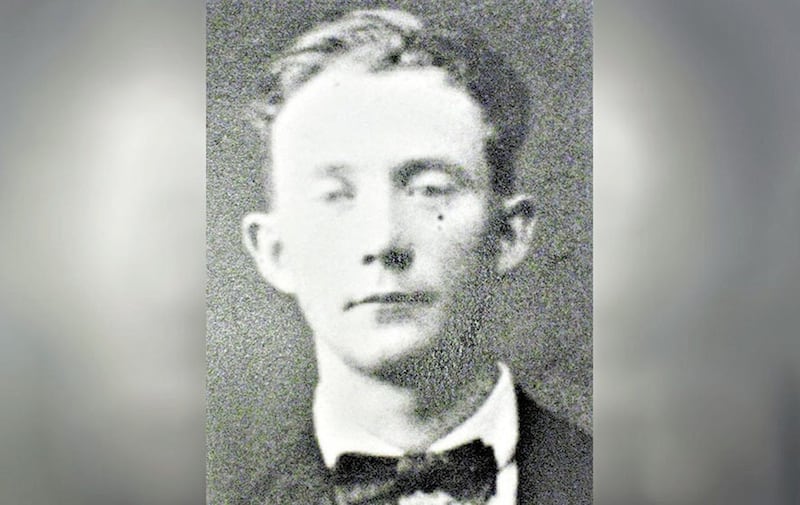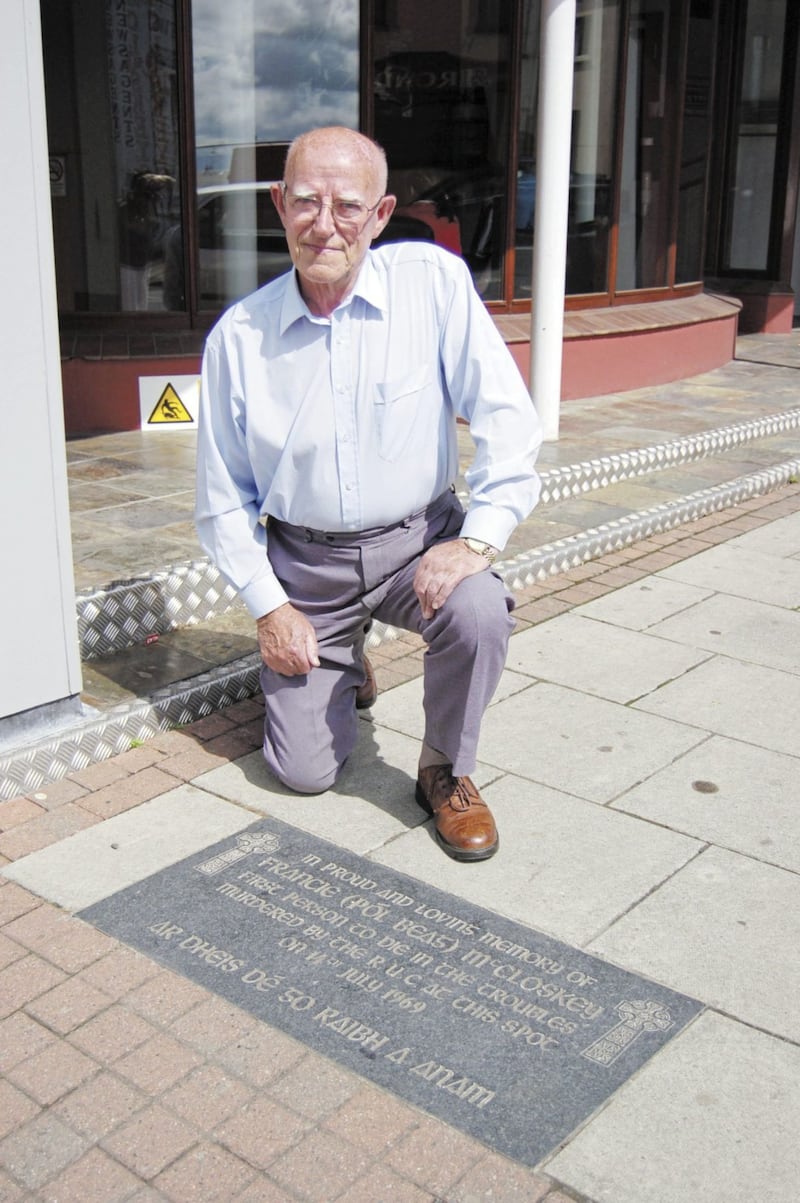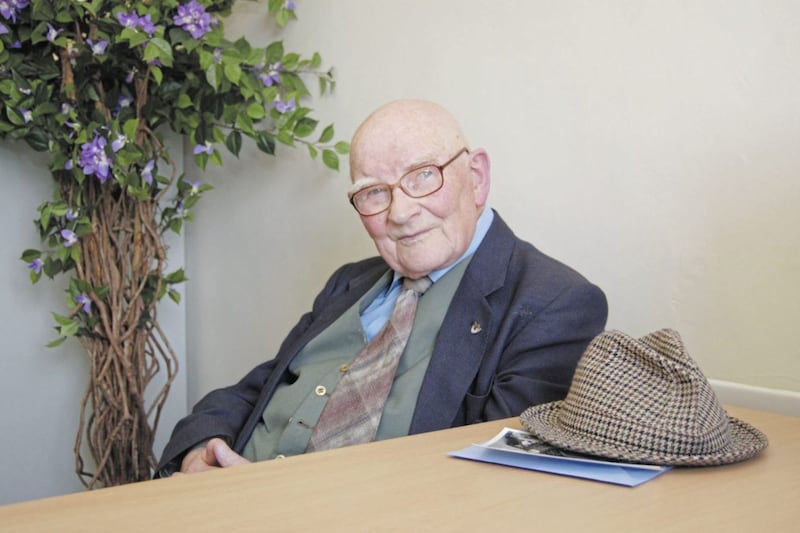THE violent death of Francie McCloskey 50 years ago left a devastating legacy for those who knew him.
The 66-year-old from the Benedy area, near Dungiven, died after an RUC baton charge launched from the town’s orange hall.
It came against a backdrop of several nights of rioting in Dungiven after a controversial Orange Order parade through the mainly nationalist town.
A retired farmer, Mr McCloskey, whose family nickname was ‘Pól Beag’, had spent the evening watching dozens of young men take part in running battles with the RUC who had been positioned in the area of the orange hall.
Earlier in the day he had travelled from his home in Benedy where he lived with his unmarried sister Rose Ellen.
Read more: Events to remember 50th anniversary of first person killed in Troubles in 1969
Tensions were high after a July 12 parade through Dungiven and eventually spilled into violence which lasted the best part of two days.
Francie had been standing in the doorway of Hasson’s Drapery Shop when a contingent of RUC men launched a baton charge at a group of youths who had gathered nearby.
Not being involved in the confrontation, Mr McCloskey remained in the doorway while others around him fled.
When police retreated back to the orange hall, he was discovered lying in the street with head injuries.

He was helped into the shop by brothers Seamus and Robbie Hasson, who had been inside their premises to ensure no damage was caused during the rioting.
They placed Mr McCloskey in a seat and made him comfortable while the building remained in darkness in order not to attract the attention of rioters.
Seamus, now aged 85, had clear and vivid memories of that fateful night.
He said: “Robbie and Francie had some talk.
“My understanding always was that when Robbie was helping him he said ‘Francie’ and Francie responded ‘Bob’.
"Now that’s what my father would have been called by the older people. Robbie would also have been called Bob by the older people.”
Another Hasson brother, Niall, who was also in the drapery store that night, said Mr McCloskey's final words included the lyrics of a traditional Irish ballad The Shawl of Galway Grey.
He said: “I was walking past him and I heard him half say, half sing, ‘in her shawl of Galway grey’.
"They were the last words he ever said.”

Along with another local man, John O’Kane, Seamus Hasson brought the dying bachelor to Altnagelvin Hospital in the early hours of July 14 1969.
He said: “We didn’t put on the light to examine him or anything.
"He would have been there for an hour or an hour and a half.
“It was only at 1.15am that my brother Niall and myself decided we would need to run him up to his own home.
"We thought he would have rested and we could bring him up to Rose Ellen.
“Then we put on the light and discovered that he was slumped over the chair and we discovered the dried blood behind his left ear.
“We rang Father Doherty and doctor McFlynn.
"The reason we rang the doctor was to get him around to see Francie. He said he would ring the ambulance. He rang back to say an ambulance was (not) available so we decided to bring him to Altnagelvin by car."
Seamus added: “I then said I will bring him myself.
"Big John O’Kane, who was a builder and a big hefty man, which suited me well because there was a bit of trouble that night, he and I got Francie into the back seat and brought him into the hospital. We left them two telephone numbers, one of them our own for the day time and Fr Doherty’s for night time.”
Mr McCloskey lost his fight for life at 8pm.
A pathologist later confirmed he had died from a brain haemorrhage which followed a blow to the head.
Seamus always remained adamant that Mr McCloskey was an innocent bystander.
“He was 66, and he lived with old sister Rose Ellen. He would have been quiet, he was an elderly man. He was there by accident. He wouldn’t have been coming down to get involved in any row.”
Seamus formally identified Mr McCloskey’s remains and together with his brothers acted as undertakers during his funeral which attracted around 4,000 mourners from across the country.
A memorial on Dungiven’s main street now marks the spot where Mr McCloskey fell.
Read more: Events to remember 50th anniversary of first person killed in Troubles in 1969




